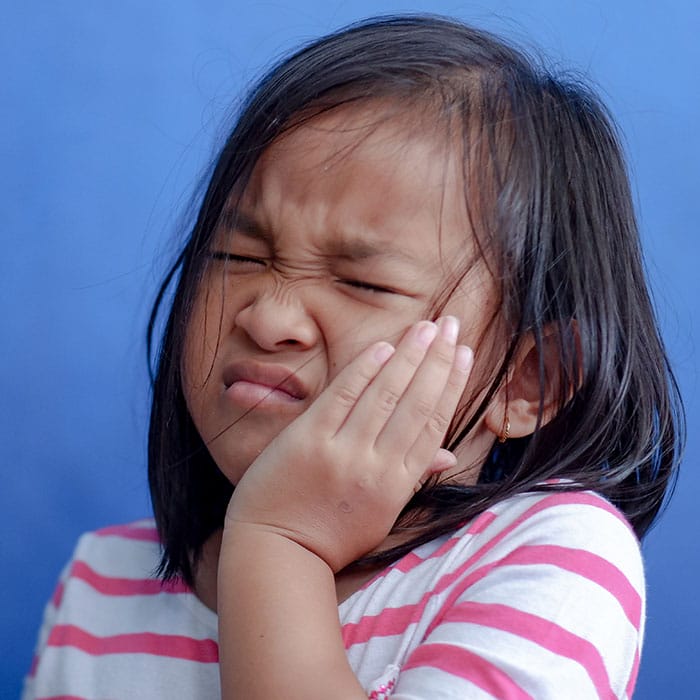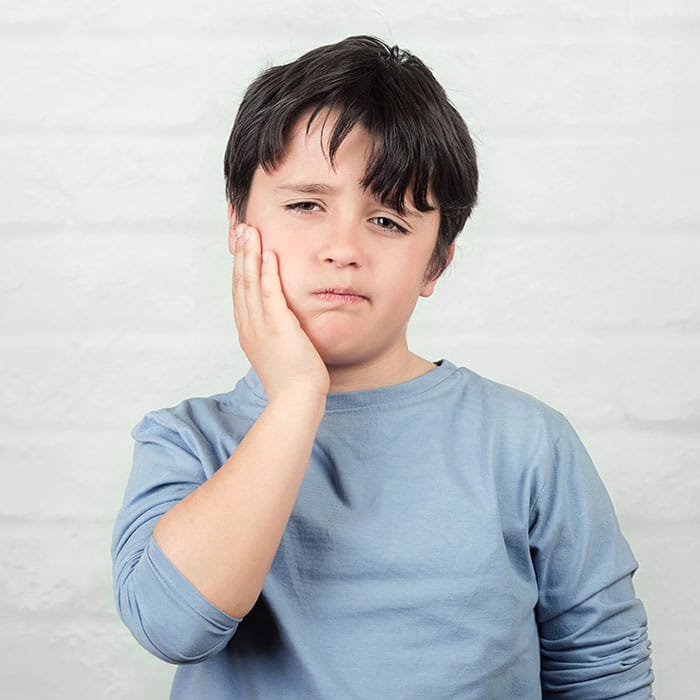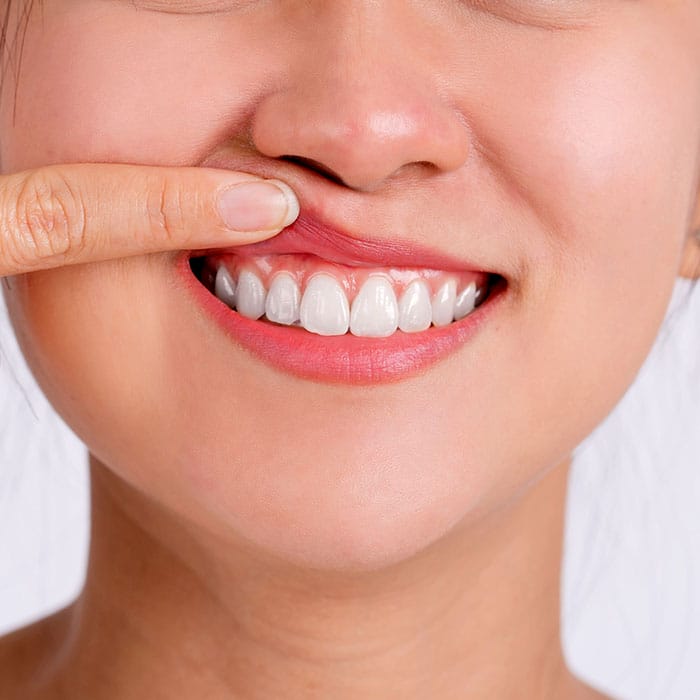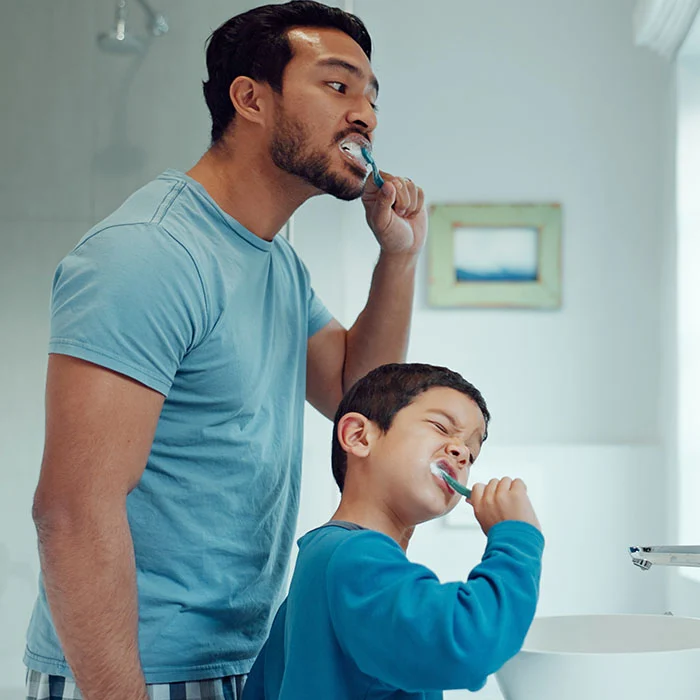IT MIGHT BE CLICHÉD to say it, but it’s true that kids grow up fast. They’re constantly outgrowing their clothes, outsmarting your most ingenious baby-proofing techniques, and learning new things. We can’t help you with all of that, but we’re here with all the information you need about your child’s dental development, which is why it’s time to talk about how pacifier use or thumb/finger-sucking beyond the toddler years can negatively impact their teeth and jaws.

Pacifiers Are Good (to a Point)!
Pacifier habits don’t have a great reputation, but they’re perfectly healthy self-soothing habits for babies and toddlers. It helps them feel safe and happy when they encounter something new or stressful — which is often, considering that everything is new for babies and toddlers. There are a number of benefits, including:
- Making it easier for Baby to fall asleep and stay asleep (which also means fewer sleep interruptions for the parents)
- Keeping Baby from getting upset when separated from parents
- Reducing the risk of sudden infant death syndrome (SIDS)
When Do They Stop Being Good?
Past a certain age, as adult teeth are developing in your child’s jaw, frequent and vigorous thumbsucking or pacifier use begin to have harmful effects on how those adult teeth will grow in, and they can even change the shape of the dental arch. There’s no need to preemptively worry about this, however; most children grow out of these self-soothing habits on their own before they turn four. If they’re showing no sign of stopping by then, it might be a good time to intervene.
Tips for Breaking a Thumbsucking Habit
Stopping your child from using their pacifier can be as simple as taking the pacifier away or trimming it down until they lose interest, but obviously that’s not possible for thumbsuckers. We wouldn’t recommend trying to stop them as toddlers because they aren’t mature enough to understand and will likely only be upset. Nasty-tasting topical aids also aren’t perfect, and sometimes they can be harmful.
Here are a few strategies we can get behind:
- Focus more on praising successes than scolding failures.
- Keep their hands too busy with engaging activities (like arts and crafts) for them to have a free thumb for sucking.
- Put socks over their hands while they sleep to prevent nighttime thumbsucking (you might have to tape the socks in place).
Ask Us for Advice!
If your child is getting closer to preschool age with no signs of stopping their pacifier or thumbsucking habit, feel free to bring us your concerns! We can work together to come up with a great strategy for helping your child outgrow this tendency to keep their healthy dental development on track!
While pacifiers are good to a point, there is time they need to stop. Your child’s oral health is our top priority!
The content on this blog is not intended to be a substitute for professional medical advice, diagnosis, or treatment. Always seek the advice of qualified health providers with questions you may have regarding medical conditions.







